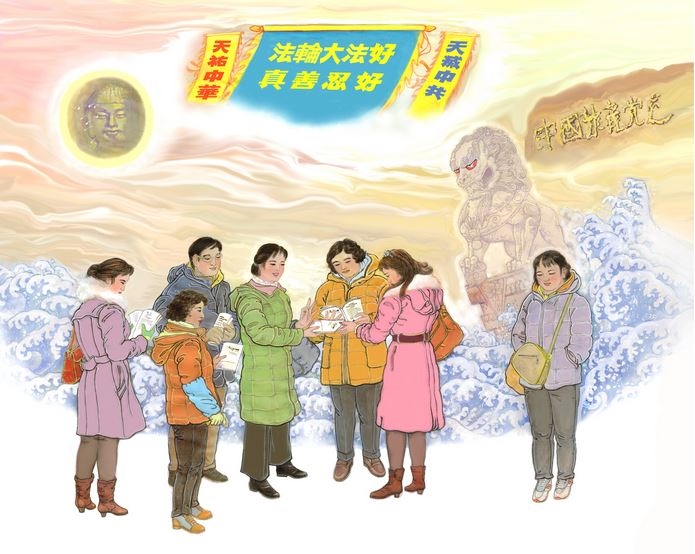By Kathy Hu, Vision Times contributor
In an age where media content transcends borders, Netflix’s adaptation of the Chinese sci-fi novel “3 Body Problem” has ignited a flurry of reactions, both internationally and within China. However, unlike the global praise and curiosity it has garnered, the series has faced outright banishment in mainland China, instigating a wave of nationalism fueled by memories of the Cultural Revolution.
The “3 Body Problem” series, which premiered on Netflix on March 21, 2024, is not just a space opera but an introspective on humanity’s crises and choices, with a poignant start set during China’s Cultural Revolution. The portrayal of this era, depicted through the harrowing experiences of the protagonist Ye Wenjie (葉文潔), has touched a sensitive nerve within the Chinese Communist Party (CCP), leading to the series’ prohibition in China.
The Cultural Revolution, which was launched by communist dictator Mao Zedong in 1966, plunged China into a decade of social and political upheaval. Though it was intended to reinforce communist ideology by purging elements of traditional and capitalist culture, the movement spiraled into a period of widespread abuse, famine, and bloodshed. The plight was also known as “ten years of havoc.”
A dark chapter in history
This response from the CCP is rooted in the historical and psychological impacts of the Cultural Revolution, a decade-long period marked by severe social and political upheaval. The portrayal of such a controversial time — characterized by brutal struggles and public executions — has rekindled memories that the CCP often prefers to keep under wraps.
Success
You are now signed up for our newsletter
Success
Check your email to complete sign up
The series delves into the grim realities of the era, reflecting on the atrocities committed and the profound societal scars it left, which contradicts the Party’s sanitized narrative.
The series’ ban highlights the ongoing tension between preserving historical memory and the CCP’s narrative control. While the novel “3 Body Problem” by Liu Cixin, a celebrated figure in Chinese science fiction, received acclaim within China, the Netflix adaptation’s visual representation of the Cultural Revolution’s brutality has been deemed unacceptable by the authorities.
This act of censorship is part of a larger pattern, as observed in China’s current socio-political climate, which some critics have likened to a new form of Cultural Revolution, dubbed “Cultural Revolution 2.0” by observers on social media.
Collective healing
This new wave is characterized by a resurgence of Maoist ideals and the persecution of dissenting voices, reminiscent of the past yet adapted to the digital age’s mechanisms. Instances like the public harassment faced by global figures and domestic enterprises under the guise of patriotism and anti-foreign sentiment echo the Red Guards’ actions during the original Cultural Revolution.
Yet, this time, the tools are digital, and the platform global, revealing a complex interplay between nationalism, historical memory, and political power.
Interestingly, the current leadership under Chinese leader Xi Jinping, who himself was a victim of the Cultural Revolution, is perceived as a driving force behind this resurgence. This paradoxical situation raises questions about the impact of past traumas on present behaviors and policies. Xi’s leadership, marked by an evident admiration for Maoist policies, reflects a deep-seated influence of the Cultural Revolution’s legacy, not as a reminder of caution but as a blueprint for consolidating power and control.
The ban on the series thus serves as a focal point for broader discussions about China’s political landscape, the collective memory of its people, and the government’s ongoing struggle with its historical narrative. It also sheds light on the intricate dance between power, history, and identity, as the country continues to navigate its past’s shadows while trying to forge its future on the global stage.
In conclusion, the controversy surrounding Netflix’s “3 Body Problem” is more than a dispute over a television series; it is a reflection of the ongoing struggle within China to reconcile its traumatic past with its present ambitions. It illustrates how the echoes of history continue to shape the political and cultural landscape of one of the world’s most powerful nations — revealing the enduring impact of the Cultural Revolution and the complexities of memory, censorship, and identity within modern China.















